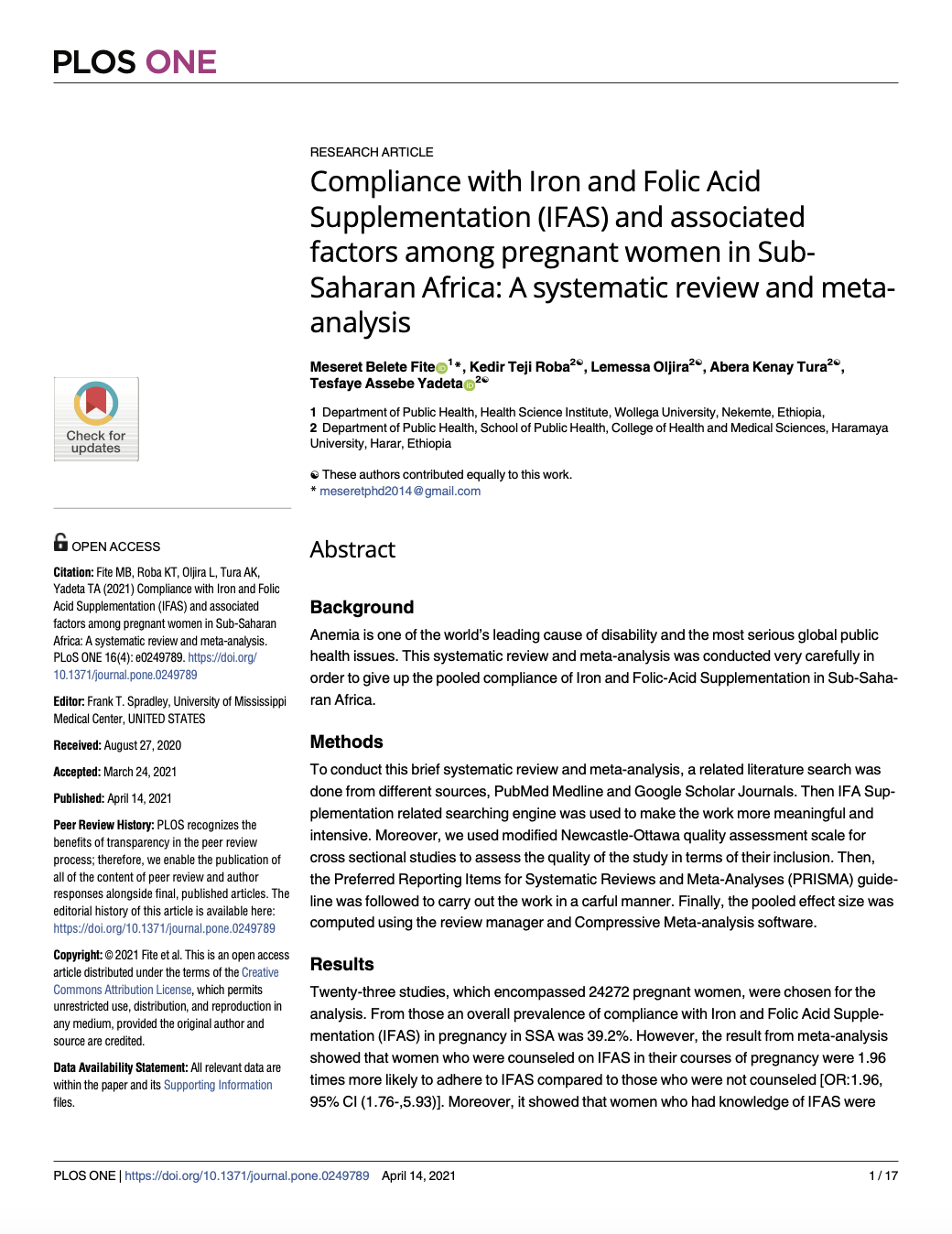Compliance With Iron and Folic Acid Supplementation (IFAS) and Associated Factors Among Pregnant Women in Sub-Saharan Africa: a Systematic Review and Meta-Analysis
Publication Year: April 2021
Authors: Meseret Belete Fite, Kedir Teji Roba, Lemessa Oljira, Abera Kenay Tura, Tesfaye Assebe Yadeta
Contributing Organization: PLOS ONE
Background: Anemia is a significant global health issue, particularly affecting Sub-Saharan Africa (SSA). This systematic review aimed to assess compliance with Iron and Folic Acid Supplementation (IFAS) among pregnant women in SSA, given its crucial role in combating anemia-related disabilities.
Methods: This study began with a literature search for relevant studies, using the modified Newcastle-Ottawa quality assessment scale for cross sectional studies to assess the quality of the study in terms of their inclusion as well as Preferred Reporting Items for Systematic Reviews and Meta-Analyses (PRISMA) guidelines. Review Manager and Comprehensive Meta-Analysis software were used to compute pooled effect sizes, and 23 studies were chosen for analysis.
Results: The results show the importance of counseling on IFAS, as women who were counseled during their pregnancy were almost twice as likely to adhere to IFAS than those who were not counseled. The importance of education is also highlighted, as women who had knowledge of IFAS were 2.71 times more likely to have compliance with IFAS than those who had no knowledge of IFAS, and women who had knowledge of anemia were 5.42 times more likely to have compliance with IFAS than those who had no knowledge of anemia. A higher number of antenatal care visits was also correlated with greater compliance with IFAS.
Conclusions: The study revealed low compliance rates with IFAS among pregnant women in SSA. Factors such as knowledge about anemia and IFAS, counseling on IFAS, and adequate antenatal care visits were identified as significant predictors of compliance. These findings highlight the need for targeted policy interventions and nutrition education programs to improve maternal health outcomes in SSA. The study suggests that these findings should inform policy makers and calls for further research to refine strategies aimed at enhancing compliance with IFAS among pregnant women in SSA.

